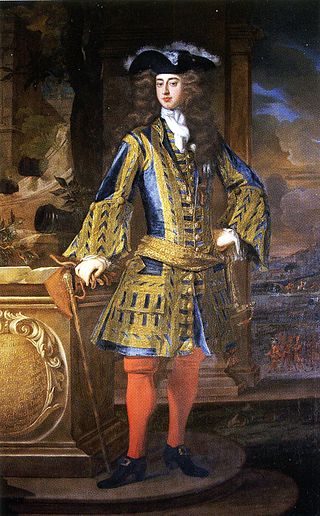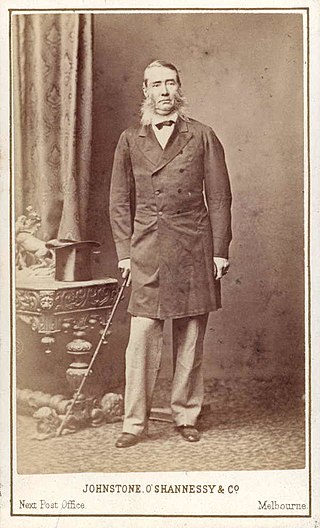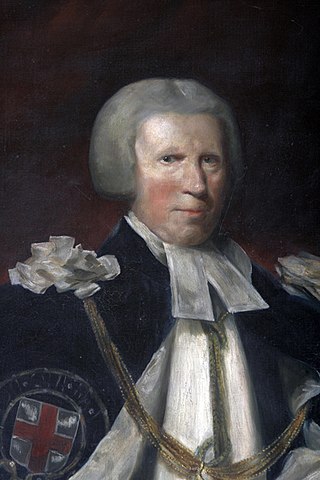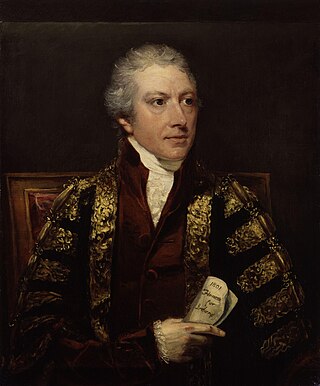
Charles Manners-Sutton was a bishop in the Church of England who served as Archbishop of Canterbury from 1805 to 1828.
William Sacheverell was an English politician who sat in the House of Commons in two periods between 1670 and 1691.

The Speaker of the House of Commons is the presiding officer of the House of Commons, the lower house and primary chamber of the Parliament of the United Kingdom. The current speaker, Lindsay Hoyle, was elected Speaker on 4 November 2019, following the retirement of John Bercow. Hoyle began his first full parliamentary term in the role on 17 December 2019, having been unanimously re-elected after the 2019 general election.

Charles Manners-Sutton, 1st Viscount Canterbury, was a British Tory politician who served as Speaker of the House of Commons from 1817 to 1835.

James Abercromby, 1st Baron Dunfermline FRSE, was a British barrister and Whig politician. He served as Speaker of the House of Commons between 1835 and 1839, the first Scottish MP to hold that position.

Edward John Littleton, 1st Baron Hatherton PC, FRS, was a British politician from the extended Littleton/Lyttelton family, of first the Canningite Tories and later the Whigs. He had a long political career, active in each of the Houses of Parliament in turn over a period of forty years. He was closely involved in a number of major reforms, particularly Catholic Emancipation, the Truck Act 1831, the Parliamentary Boundaries Act 1832 and the Municipal Corporations Act 1835. Throughout his career he was actively concerned with the Irish question and he was Chief Secretary for Ireland between 1833 and 1834.

John Manners, 2nd Duke of Rutland KG, styled Lord Roos from 1679 to 1703 and Marquess of Granby from 1703 to 1711, was a British Whig politician who sat in the English and British House of Commons from 1701 until 1711, when he succeeded to the peerage as Duke of Rutland.

Viscount Canterbury, of the City of Canterbury, was a title in the Peerage of the United Kingdom. It was created in 1835 for the Tory politician Sir Charles Manners-Sutton, who had previously served as Speaker of the House of Commons. He was created Baron Bottesford, of Bottesford in the County of Leicester, at the same time, also in the Peerage of the United Kingdom. Manners-Sutton was the son of the Most Reverend Charles Manners-Sutton, Archbishop of Canterbury, fourth son of Lord George Manners-Sutton, third son of John Manners, 3rd Duke of Rutland. His uncle was Thomas Manners-Sutton, 1st Baron Manners, Lord Chancellor of Ireland.
Dysart Burghs was a district of burghs constituency of the House of Commons of Great Britain from 1708 to 1801 and of the House of Commons of the United Kingdom from 1801 to 1832. It elected one Member of Parliament (MP).

John Henry Thomas Manners-Sutton, 3rd Viscount Canterbury, styled The Hon. John Manners-Sutton between 1814 and 1866 and Sir John Manners-Sutton between 1866 and 1869, was a British Tory politician and colonial administrator.

Sir George Pretyman Tomline, 5th Baronet was an English clergyman, theologian, Bishop of Lincoln and then Bishop of Winchester, and confidant of William Pitt the Younger. He was an opponent of Catholic emancipation.

The 1971 election of the Speaker of the House of Commons occurred on 12 January 1971, following the retirement of the previous Speaker Horace King. The election resulted in the election of Conservative MP Selwyn Lloyd, formerly Chancellor of the Exchequer and Foreign Secretary. It was the first election with more than one nominee since William Morrison defeated Major James Milner in the 1951 election.
The 1780 election of the Speaker of the House of Commons occurred on 31 October 1780.

The June 1789 election of the Speaker of the House of Commons occurred on 8 June 1789.
The 1770 election of the Speaker of the House of Commons occurred on 22 January 1770.

The 1802 election of the Speaker of the House of Commons occurred on 10 February 1802.

The 1839 election of the Speaker of the House of Commons occurred on 27 May 1839. James Abercromby had retired due to failing health. The next day he was raised to the peerage as Baron Dunfermline.

The 1817 election of the Speaker of the House of Commons occurred on 2 June 1817.

The 1833 election of the Speaker of the House of Commons occurred on 29 January 1833.















